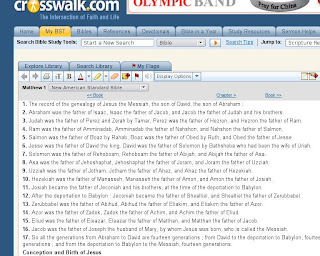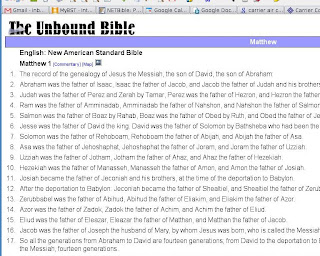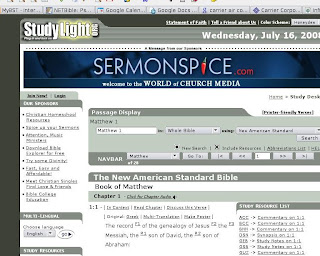The Youth have been studying the book of Acts on Wednesday nights, seeing over and over again how much believers can accomplish when they just have confidence that God's Word is true and that the Holy Spirit will actively build the Church. This week, we were in the second part of chapter 17, where Paul is in Athens (the other Athens) engaging the philosophers on Mars Hill (also called the "Areopagus"). Paul knew that his normal message of how Jesus is the Messiah anticipated in the Old Testament would not work on these philosophers who knew little to nothing about the Old Testament. Instead, Paul preaches the same Gospel, but in a completely different way - in a way that did not refer to the Old Testament at all.
Discussing this passage, the students thought about ways to present the Gospel today without referring to the Bible specifically - which we need to know how to do in an age when the Bible is not universally regarded. There have been volumes written on how to do this - there are even writings from before Christ on how to demonstrate that God exists without using the Scriptures as proof.
Below is a quick summary of one such argument. Space does not allow a full explanation of this approach, but a summary will still give you a good idea of how the argument goes. Just like Paul's approach in Athens 2000 years ago, the approach starts with statements that the audience will readily agree with. Each step, however, should be discussed in much more detail when sharing this with others.
1. Everything that has a beginning has a cause.
2. The universe has a beginning.
3. Therefore, the universe has a cause.
4. At the beginning of the universe, matter, energy and time also began.
5. Therefore, the cause of the universe cannot be comprised of matter or energy, and cannot be bound within time.
6. The universe bears evidence of design (this statement needs a lot of explanation for skeptics)
7. Therefore, the cause of the universe must be intelligent.
8. The existence of the universe is not necessary (it could have been the case that the universe never came into existence).
9. Therefore, the cause of the universe must have a will.
10. The universe exhibits beauty (ahthough beauty is subjective and could be accidental).
11. Therefore, it is likely that the cause of the universe appreciates beauty.
12. Since the cause of the universe has intelligence, a will, and likely emotions, the cause of the universe is a Being with personhood.
13. Also from evidence of the universe, we can discern that this Being is very powerful (or even omnipotent), very large (or even omnipresent), and very intelligent (or even omniscient).
So far, we have established that a Being (whom we can call "God") exists. We haven't proven it beyond all possible doubt, but at least we have shown that believe in the existence of God is rational. We have not shown, however, anything about Jesus or His Gospel.
1. The universe is finely tuned to allow life to exist (there is a lot of evidence to support this, which may be necessary to reference).
2. Therefore, God demonstrates care and concern for living creatures.
3. The basic human condition includes struggles with the existence of evil and the reality of death.
4. The nature of the universe suggests that God would be aware of man's basic condition, and furthermore, would have care and concern for it.
5. Question: Based on what we can tell about God from the universe, would you think that He would be the kind of God who would do nothing about man's basic condition, or would He be the kind of God who would do something? (If they say "nothing", then you may have to continue on the assumption that He would do something.)
6. Explore the major world religions with the one you're talking to and openly discuss which of these most effectively deals with man's basic condition. (Christianity is the only religion that offers a complete solution that fits with all we've discussed so far.)
If you can successfully walk someone through to this point, then the next step is crucial. People won't likely believe in Christ because they feel worked into a philosophical corner. So, we don't want to badger them into trying to make a decision. Simply tell them, "All we've done so far is to show that belief in Jesus is rational. So, let's conduct a spiritual experiment. Live life for the next month on the assumption that this is all true - just as an experiment. Do everything under the assumption that Jesus is who the Bible claims - follow the ways of righteousness, pray (even if you're praying to a God you don't fully believe in, yet), confess and repent, and so on. Experimentally live as you would if you knew for sure all this was true - and then after a month, assess whether or not you want to seriously explore the claims of Christ."
This is a lot fo information, and I don't expect you to absorb all of it at once. Rather, save this article and become familiar with the basic points, and when you find opportunities, explore one or two items with someone in conversation. When you become more and more familiar with the concepts, you'll find that you can talk with people about the God who exists without being preachy or pushy.
(Thanks to Dr. Doug Geivett for the idea of the "spiritual experiment".)











